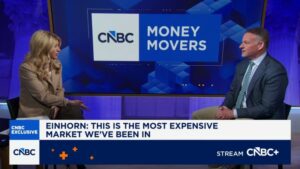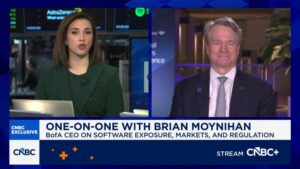Supply-chain bottlenecks have been clogging U.S. ports for months, leaving tens of thousands of shipping containers on cargo ships languishing off the Southern California coast.
The backlogs, despite new 24-hour shifts at several gateway ports, threaten to leave some retailers in the lurch for the all-important holiday shopping season, even those paying top-dollar to ship goods across the ocean.
But historic logjams also have turned simple, steel boxes that ferry goods around the world into one of the pandemic’s hottest commodities, a development that for now has been bullish for debt investors in shipping containers businesses.
“Every container sitting there bobbing in the ocean isn’t sitting in some warehouse waiting to be leased,” said Richard Talmadge, an Insight Investments analyst focused on the container asset-backed bond sector for roughly 15 years.
“The bigger concern I have is that everything we are talking about is a supply-chain issue,” Talmadge said, pointing to container-lease companies that dramatically ramped up borrowing during the pandemic, often with an eye to invest in more containers to solve temporary bottlenecks and snarled supply routes.
“The ports, themselves, they are just jammed,” he said of backlogs on sea and land, where shortages of truck drivers and warehouse workers heading into peak shipping season could hamstring supply routes beyond Long Beach, Calif., the second-busiest U.S. port, perhaps for another six months to a year.
“Now you’re also going out and creating a ton of new containers to deal with a shorter-term bottleneck situation,” Talmadge said. “Will there be enough demand to ultimately absorb the supply?”
Borrowing bonanza
Container fleet companies, including Textainer Group Holdings
TGH,
Triton International Ltd.
TRTN,
and Seaco, a unit of Chinese conglomerate HNA Group, responded to the shipping frenzy by embarking on a borrowing spree.
The niche container-backed bond market has seen about $12.4 billion of new issuance since the start of 2020, or more volume than the six prior years combined, according to bond tracking platform Finsight.
Like other risk assets, yields have compressed making it a good time to be a borrower. Specifically, the large Single A-rated class of Textainer’s more recent $600 million financing in August priced to yield 1.95%, whereas it sold similar bonds in 2019 at a 4% yield, according to Finsight.
Textainer, Triton and Seaco did not immediately respond to requests for comment.
But for debt investors, that’s meant less compensation in a sector recently tangled up in U.S. and China trade tensions during the Trump administration and then by the coronavirus pandemic.
“It’s a pretty simple story,” said John Kerschner, head of securitized products at Janus Henderson Investors, of the container sector. “It’s very well correlated with global GDP growth. If that’s growing, more things are being sold, and more things are being shipped.”
Since the U.S. economy has rebooted following the worst, early shocks of the COVID crisis, shipping rates have climbed to nearly $20,000 per 40-foot metal container on the busy China to California route, up from closer to $2,000 before the pandemic, investors said. The price of each big, metal box jamming up U.S. ports also at least doubled to about $4,000.
A Container’s Life
Shipping containers can be assembled fast, often as quickly as six to eight weeks, and usually have a 15-year life cycle, whereas building a new ship to catch an economic upswing can take years and miss the boom.
In terms of downside risks, the scrap value of a container has been pegged at roughly $1,000. Ideally for container bond investors, it won’t come to that. Many container ship companies seek out long-term leases with a range of shipping lines, so that if one goes bust, or a regional downturn occurs, there is less concentrated exposure and a greater chance that investors get repaid.
Another top factor has been control in the flow of goods. Some major retailers have their own shipping containers, but also lease boxes from others to maintain flexibility. Although, this vital holiday season comes with the added headache of container shortages, particularly for retailers that aren’t big, national chains able to charter their own ships to bypass chaos at the busiest ports.
Credit-rating firm KBRA already in June pointed to demand for containers that was running near all-time highs, but also decreased production from the “a small number of Chinese manufacturers who produce containers” due to the COVID-19 crisis.
“This all bodes well for the container industry and the securities,” said Peter Kaplan, a senior portfolio manager at Merganser Capital Management, who also isn’t particularly worried about oversupply of containers. “That is your Achilles’ heel, if all the other retailers have boxes and you don’t.”
“But the ultimate uncertainty is how long is this going to last? My guess is through the end of 2022,” he said of backlogs.
Kerschner at Janus previously invested in container-backed bonds, but said the firm sold most of its exposure years ago as the sector rallied. And when it comes to pandemic supply-chain disruptions, his focus instead has been on auto bonds of loans and leases, in part because borrower delinquencies have fallen near to record lows, but new and used car prices in 2021 also have set record highs.
“You had people who owned a used car for three years, but were able to sell it for more than they paid for it,” Kerschner said. “It’s kind of ridiculous, but that’s the world we live in.”
See: It is the ‘golden age’ of U.S. consumer credit, says this Voya portfolio manager
This post was originally published on Market Watch






